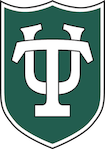Title
Category
Credits
Event date
Cost
- General Public Health
- 2.00 Participation/CE
$0.00
Course Description:At the start of a new hurricane season, Gulf Coast residents have moved beyond the "lessons learned" stage and are forging ahead with rebuilding. Central to those efforts is assuring health. While it has become clear that a sustainable health system requires engagement from other non-traditional health-related disciplines, the evidence base supporting such transdisciplinary approaches is sparse.
- General Public Health
- 2.00 Participation/CE
$0.00
Course Description:This program will examine the roles played by three state public health agencies in the response and recovery phases of Hurricane Katrina, specifically with respect to the public health core functions. The State Health Officers from Alabama, Louisiana, and Mississippi will discuss how their agencies roles in assessment, policy development, and assurance were affected by this disaster. They will discuss as a group: what worked and what didn't; and what should be modified for the future.
- General Public Health
- 1.00 Participation/CE
$0.00
Course Description:This course will cover important details of the medical specialty of preventive medicine. The course also cites examples and statistics of preventable mortality in the United States and worldwide. The Preventive Medicine Residency Program offered at Tulane University School of Medicine is described in detail.
- Maternal and Child Health
- 1.00 Participation/CE
$0.00
Course Description:All states have newborn screening (NBS) programs, but many practitioners are unaware of what disorders their state/territory screens for via NBS. Additionally, despite newborn screening having existed for 50 years, many parents are unaware of this life-saving health service. This course will enable the learner to describe a general overview of the history of newborn screening, discuss the expansion of newborn screening and testing methodologies, and understand the scope of newborn screening and the role of healthcare providers.
- Leadership Development
- 2.00 Participation/CE
$0.00
Course Description:Some say that the only people who want to be changed are babies! The reality is that all of us experience resistance to innovation and change, rather than embrace or take charge of it. Individuals can choose to be proactive toward change and adopt leadership strategies for taking charge of change instead of letting it take charge of them. This session will explore the change process and examine typical responses to change, environmental influences, and strategies for adapting successfully within the public health field.
- General Public Health
- 2.00 Participation/CE
$0.00
Course Description:Business as usual is over, even in health care and public health. This program will challenge you to adopt a proactive stance to your work life. Program faculty will provide insight on how to position yourself to not only survive but also thrive in this new world of work. Note: This course was originally delivered as a satellite broadcast.
- Maternal and Child Health
- 2.00 Participation/CE
$0.00
Course Description:To date, the majority of research and policy efforts to prevent child maltreatment have been focused on individual and family level programs, such as home visiting, that target at-risk families. In contrast, population-level strategies aiming to shift social norms relevant to child maltreatment have been relatively under-studied and under-developed. Yet such approaches have led to great public health advances, shifting norms related to tobacco use, seat belt use, drunk driving, and violence against women.
- General Public Health
- 2.00 Participation/CE
$0.00
Course Description:Social media has become a great way to connect with people, but in the healthcare profession, social networking can often blur the ethical lines in a patient-provider relationship. Postings on Facebook and similar sites have cost some healthcare professionals their jobs and some others have even lost their license to practice. Program faculty will explore the issues which make social media a potential liability for healthcare providers and discuss ways to teach professionals how to avoid the misuse of this new media.
- General Public Health
- 4.00 Participation/CE
$0.00
Course Description:Disaster imposes adverse consequences upon a community and its people. Disasters can injure the physical infrastructure and disrupt social integration and the capability to provide basic elements of the population’s fundamental needs. Additional and exceptional vulnerabilities may be revealed by crisis, especially among community members with special needs. These include members of sub-populations who have not yet been entirely integrated into community life and plans or whose lifestyle and customs place them at additional peril.
- General Public Health
- 2.00 Participation/CE
$0.00
Course Description:This course provides background on the history, growth and issues surrounding managed health care and health insurance. Among the items covered are the development of group practice, types of managed care, the HMO-effect versus favorable selection, costs, ratings and alternative forms of insurance.

 Facebook
Facebook Twitter
Twitter LinkedIn
LinkedIn Forward
Forward